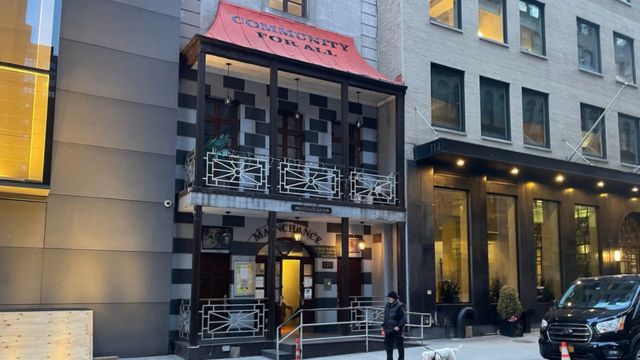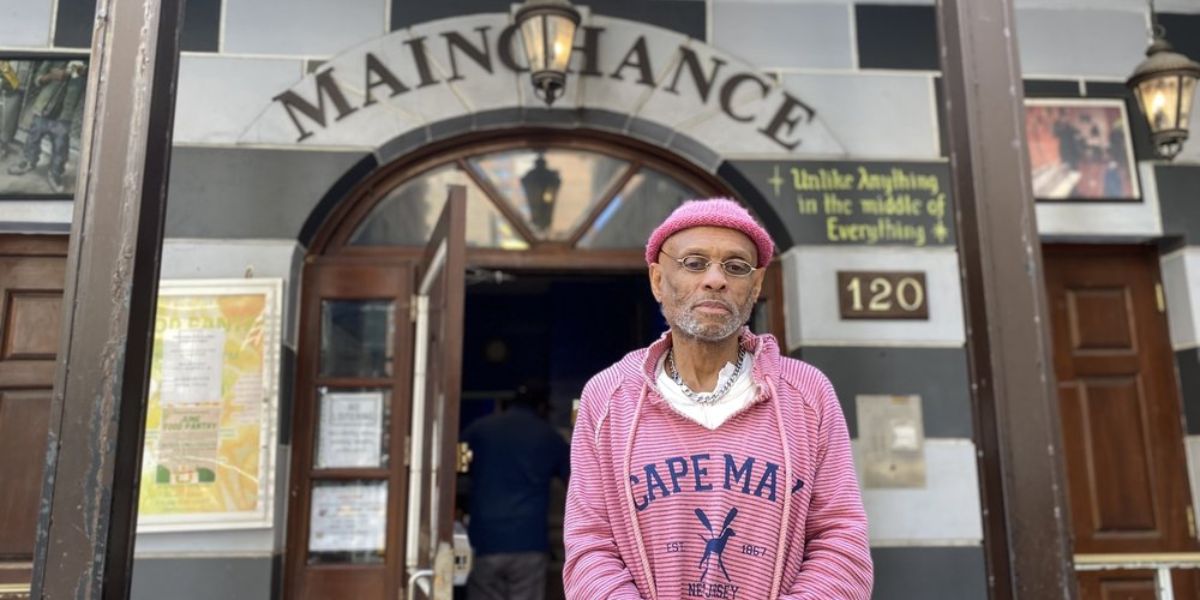Midtown Homeless Center At Risk Of Closing After City Withdraws Support
DEBARYLIFE – The city intends to terminate its contract with the Midtown service provider this summer, eliminating the program’s primary financing source. The program has been providing homeless New Yorkers with a place to rest or eat for the night for 35 years.
Local politicians are taking notice of the MainChance drop-in center’s impending closure and are pushing Mayor Eric Adams to keep it open.
While the number of homeless people in New York is rising due to an increase in new arrivals taking up shelter beds, staff at MainChance say they offer an essential alternative to communal shelters and an important service.
Brady Crain, executive director of MainChance, stated, “You’re talking about a population that has nowhere to go.” “They are unable to remain with family. Friendship is not an option for them. An hour cannot be spent with friends or family. Thus, despite how cheesy it may sound, we engage with them, offer them the alternative, and accept them.

When asked why it is ending its agreement with MainChance on June 30, the Department of Homeless Services replied that this is the only scheduled closing of a drop-in center in the city, but it did not provide an explanation.
As per the statement sent by DHS spokesman Neha Sharma, “this administration has made unprecedented investments in the expansion of dedicated resources for New Yorkers experiencing unsheltered homelessness.”
SEE MORE – Transforming Spaces – Former Massachusetts Prison To Become Shelter For Homeless Families
Sharma reported that the Adams administration increased the amount of low-barrier, or more easily accessible than typical shelter beds, and established new drop-in locations in Manhattan. According to her, this investment has assisted 1,000 New Yorkers in relocating to permanent housing during the past year.
Crain said he wasn’t sure why MainChance was singled out for closure, considering that in addition to 75 families who depend on the food pantry, they serve roughly 300 people a day and 70 people each night with three hot meals.
According to figures provided by the group, the building—which is sandwiched between a boutique hotel and a Korean Cultural Center—assisted over 25,000 people access services this fiscal year alone. During the epidemic, it helped roughly 300 people find permanent accommodation.
The city would save $3.7 million in the upcoming fiscal year, according to budget papers, if the drop-in center closed.
“We find it incomprehensible that the administration seeks to sever a vital link for so many susceptible New Yorkers,” stated City Councilwoman Carlina Rivera.They take a really comprehensive approach. They offer employment guidance, medical care, baths, and in-house banking in addition to referrals.
Rivera, Rep. Jerry Nadler, Borough President Mark Levine, and other state legislators sent a letter to DHS and Adams in April stating that their clients would be “stranded without the services they have come to rely on, and destabilize their path to permanent housing” if MainChance closed.
Three other “low-barrier” bed spaces are close by, as well as another drop-in center and Safe Haven facility, according to city authorities.
Working with the MainChance staff, Jermaine Burton, 33, said he was able to obtain a voucher for rental accommodation.
SEE MORE – L.A.’s Homelessness Problem Goes Deeper Than Housing Shortages
The employees are really professional and will assist you in any way they can. I probably wouldn’t be getting help if this place wasn’t here,” he remarked.
“Unlike anything in the middle of everything,” is written on a painted sign near the entrance of the four-story structure, which is located next to a CitiBank and the busy Midtown streets.
Deputy Executive Director Jackie Connor of MainChance stated that although the program is small, it is well situated near the Port Authority bus terminal, Grand Central Terminal, and a sizable men’s shelter. It has grown to be a community mainstay, receiving referrals from churches, the United Nations, the police, and other local businesses.
“Just enter the building,” I said. I must have a location. Food is necessary for me. I should take a shower. Alright, please enter,” Connor said. Though they don’t have mattresses, drop-in facilities do offer chairs available for guests to stay the night. It resembles shopping at one location.
At times, all kids need is a place to stay before saying, “Hey, I want to go back home.” Alright, let’s work together to return home. Hey, let’s just have a little chat with the family.
Some, she added, require case management while others remain longer and require a place to stay for a week while they move houses or get lost and need a safe place to spend the night.
After nearly a year of employment with MainChance, Dominick Delaurentis, 34, now owns his own apartment.
“They didn’t just go above and beyond for me,” he remarked. “People who work as bureaucrats and such don’t usually treat me so well.”
He still communicates with the staff on occasion, and they assisted him in enrolling in a program that will reduce his power cost lately.











